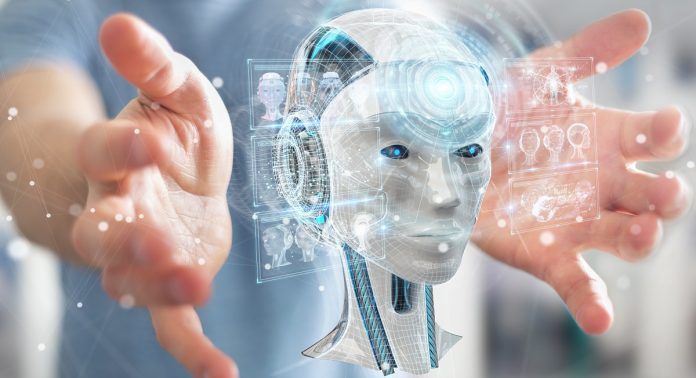The rapid expansion of technology and digital applications that characterises the ‘4th Industrial Revolution’, is changing the way we live, work – and learn. It’s a revolution driven by the fusion and amplification of emerging breakthroughs in artificial intelligence, automation and robotics, and multiplied by the far-reaching connectivity between billions of people with mobile devices that offer unprecedented access to data and knowledge. Autonomous vehicles, cloud computing, robotic nurses and surgeons, chat bots etc. are manifestations of this growing trend.
Online shopping, online games, email, social networking and media sites all have AI embedded into their applications, and the list of products and services continues to grow. Homes, cars, and financial and healthcare services are embracing machine learning to improve products and services.
Education systems, teachers and curricula need to be responsive to these changes. The 4th IR creates a demand for new skills and competencies, while automation and AI puts jobs at risk. This then creates a need to train and retrain people to utilise new technologies. National education systems have the opportunity to focus in on and hone inherently human competencies that are crucial in this rapidly shifting environment, such as problem solving, communication, critical thinking and collaboration.
Technologies, such as AI, can be utilised to support formal education and lifelong learning by promoting the development of adaptive learning environments, with tools that are flexible, inclusive, personalised and engaging. Examples include blended learning spaces where digital technologies and traditional classroom activities complement each other, and personal AI tutors that can strengthen inclusiveness by providing intelligent support specifically tailored for each learner’s needs. However, AI tools lack the socio-emotional interactive communication skills that teachers can use to get the best out of their students. To maximise its potential, education systems must not get seduced by technology; the focus should be on learning.
CAREERS IN AI
A career in artificial intelligence can be realised within a variety of settings including private companies, public organisations, education, the arts, healthcare facilities, government agencies and the military.
Examples of specific jobs held by AI professionals include – software analysts and developers, computer scientists and computer engineers, algorithm specialists; research scientists and engineering consultants; mechanical engineers and maintenance technicians; manufacturing and electrical engineers; surgical technicians working with robotic tools; Medical health professionals working with artificial limbs, prosthetics, hearing aids and vision restoration devices; military and aviation electricians working with flight simulators, drones and armaments; graphic art designers, digital musicians, entertainment producers, textile manufacturers and architects; post-secondary professors at technical and trade schools, vocational centers and universities.
SKILL REQUIRED FOR AI
Automation, robotics and the use of sophisticated computer software and programs characterise a career in artificial intelligence. Candidates interested in pursuing jobs in this field require specific education based on foundations of mathematics, technology, logic and engineering perspectives. Written and verbal communication skills are also important to convey how AI tools and services are effectively employed within industry settings.
To acquire these skills, those with an interest in an AI career should investigate the various career choices available within the field.
The most successful AI professionals often share common characteristics that enable them to succeed and advance in their careers. Working with artificial intelligence requires an analytical thought process and the ability to solve problems with cost-effective, efficient solutions.
It also requires foresight about technological innovations that translate to state-of-the-art programs that allow businesses to remain competitive. Additionally, AI specialists need technical skills to design, maintain and repair technology and software programs. Finally, AI professionals must learn how to translate highly technical information in ways that others can understand in order to carry out their jobs. This requires good communication and the ability to work with colleagues on a team.
So what are the educational requirements that students need to look at for a career in Artificial Intelligence?
Basic computer technology and a background in mathematics form the backbone of most artificial intelligence programs. Entry level positions require at least a bachelor’s degree while positions entailing supervision, leadership or administrative roles frequently require masters or doctoral degrees.
An AI coursework involves the study of the following:
- Physics, engineering and robotics
- Computer science, programming languages and coding
- Cognitive science theory
- Mathematics including probability, statistics, algebra, calculus, logic and algorithms
- Bayesian networking or graphical modeling, including neural nets
Candidates can find degree programs that offer specific majors in AI or pursue an AI specialisation from within majors such as computer science, health informatics, graphic design, information technology or engineering.
AI and machine learning involve software that has been programmed to interact with the world in ways that would otherwise be thought of as human. AI depends on knowledge about the world as well as programs or algorithms to intelligently process that knowledge.
Today, most AI programs are specifically coded to do one task. This sparks fears of the ‘singularity’ of AI, where the technology will be able to redesign and improve itself, or design more powerful AI, a popular theme in science-fiction books and films, such as Terminator, I, Robot, and 2001: A Space Odyssey.
Ethical questions are raised, not only around how we utilise AI, but the ethics of such technologies. One fear is that these technologies will centralise power, deepening inequality. Depending on how AI has been programmed, it may analyse a situation and implement solutions detrimental to people or the environment.
Since AI is a reflection of its creators and those who have programmed it, we need to make sure that these technologies are aligned with our moral and ethical values.
Despite these concerns, AI holds immense potential for students for an interesting and rewarding career. From its inception in the 1950’s through the present day, artificial intelligence continues to advance and improve the quality of life across multiple industry settings.
As a result, those with the skills to translate digital bits of information into meaningful human experiences will find a career in artificial intelligence to be sustaining and rewarding.






